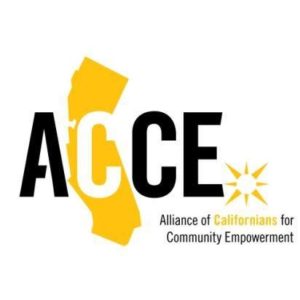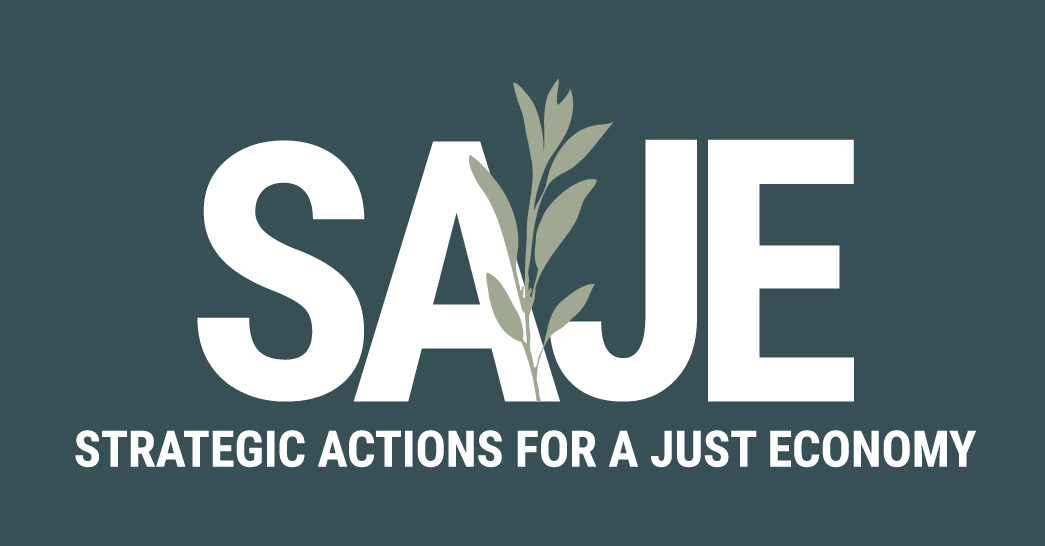FOR IMMEDIATE RELEASE: November 16, 2020
Media Contact: Rekha Radhakrishnan, 832-628-2312, rradhakrishnan@publiccounsel.org, Ralph Jean, 404-895-7004, rjean@saje.net, Sylvia Moore, 213-804-4679, smoore@calorganize.org
TENANTS DECLARE VICTORY AS LANDLORDS DENIED INJUNCTION IN CHALLENGE TO LOS ANGELES COVID-19 TENANT PROTECTIONS
Ordinances including 12-month repayment period and ban on eviction stemming from pandemic-related financial losses will remain in place
LOS ANGELES, CALIFORNIA – On Friday, a federal judge announced a ruling denying a preliminary injunction for the Apartment Association of Greater Los Angeles, keeping crucial citywide ordinances in place to protect tenants during the COVID-19 pandemic. Tenants’ rights organizations the Alliance of Californians for Community Empowerment Action (ACCE Action) and Strategic Actions for a Just Economy (SAJE) joined the federal lawsuit Apartment Association of Greater Los Angeles (AAGLA) v. City of Los Angeles in July to defend the City’s emergency eviction protections and rent freeze. AAGLA’s lawsuit seeks to void the City’s validly enacted eviction protection and rent freeze ordinances, thereby allowing its members to engage in mass evictions during the pandemic. Public Counsel, the Western Center on Law and Poverty, Public Interest Law Project, and Susman Godfrey LLP represent ACCE Action and SAJE.
“The governing bodies of Los Angeles have a responsibility to protect the most vulnerable among us during the ongoing COVID-19 pandemic, where having housing is a matter of life or death,” said Faizah Malik, Senior Staff Attorney at Public Counsel. “The City’s eviction protection and rent freeze ordinances have been crucial to keeping tenants stably housed during the pandemic and preventing the spread of the virus. We’re pleased with the Court’s ruling in favor of the health and safety of all residents in the City.”
The Court held that even though some landlords are facing financial hardships, their interests must “yield precedence to the vital interests of the public as a whole.” Listening to public health and housing experts, the Court found that the “economic damage the pandemic has wrought, if left unmediated by measures such as the City Moratorium, would likely trigger a tidal wave of evictions that would not only inflict misery upon many thousands of displaced residents, but also exacerbate a public health emergency that has already radically altered the daily life of every city resident, and even now threatens to overwhelm community resources.”
“The Court joined courts across the country in affirming the common-sense principle that cities can constitutionally give tenants a lifeline during the greatest emergency of our time. We appreciate the Court’s thorough decision and detailed review of the briefing and factual record,” said Rohit Nath of Susman Godrey LLP.
The toll of this unprecedented public health crisis has weighed most heavily on low-income tenants of color who make up ACCE Action and SAJE’s membership base. A majority of ACCE Action and SAJE members have lost income during the pandemic and are struggling to pay rent; those that kept their jobs are frontline workers who are risking contracting COVID-19 every day because they have no other choice. Despite the challenges they are facing, many members are trying to pay rent, at the expense of other necessities like food. But many tenants simply cannot keep up with the rent as the pandemic continues.
“Without eviction protections, hundreds of thousands of families are at risk of being displaced. The current protections are the hard fought results of persistent organizing and have delayed an even worse crisis,” said Edna Monroy, Director of Organizing, for SAJE. “Evicting families while we are in the midst of another wave of the pandemic and during an ongoing housing and homelessness crisis would be a humanitarian disaster.”
“Since the pandemic began, I haven’t been able to find work as a house cleaner, and am now several months behind on rent. If I were evicted, I wouldn’t have anywhere to go,” said Yolanda N., a tenant and member of SAJE.
SAJE and ACCE Action have been actively involved with advocacy around LA tenant protections during the pandemic. The City of Los Angeles enacted the emergency eviction protections ordinance in late March, which prohibits landlords from evicting tenants who are unable to pay rent due to circumstances related to COVID-19, such as loss of income or healthcare expenses; provides tenants with a 12-month repayment period to pay back rent; and prohibits landlords from evicting tenants based on the presence of unauthorized occupants or pets or for nuisance related to COVID-19. The City also enacted the rent freeze ordinance in early May to freeze rent increases for one year for all units protected by the City’s Rent Stabilization Ordinance.
“I’m grateful for the City’s actions to protect tenants in the wake of the pandemic,” said Kelli Lloyd, a tenant and member of ACCE. “Relief for renters, like myself, and owners alike is possible without the mass evictions and increased homelessness that AAGLA seeks to instigate. We will keep fighting for tenants because Housing is Human Right.”
###
Since 1996, Strategic Action for a Just Economy (SAJE) has been a force for economic justice in Los Angeles. For over 20 years we have worked side-by-side with our neighbors to improve our community by advocating for tenant rights, healthy housing, and equitable development.
The Alliance of Californians for Community Empowerment (ACCE) is a grassroots, member-led, statewide community organization working with more than 15,000 members across California. ACCE is dedicated to raising the voices of everyday Californians to fight for policies and programs we need to improve our communities and create a brighter future.

